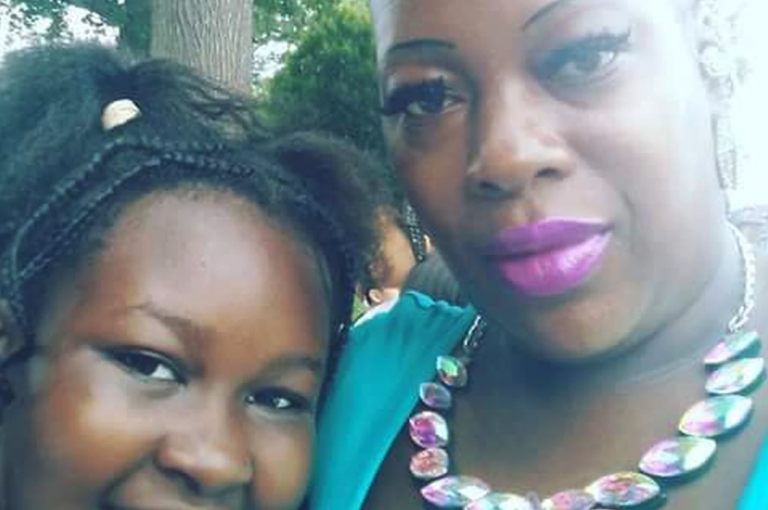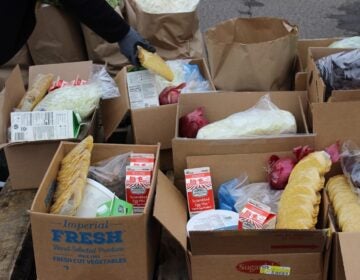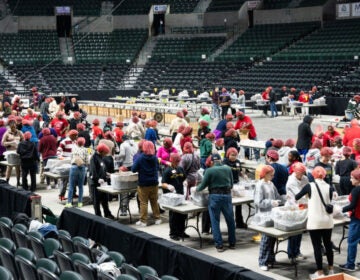Report: Hunger and discrimination go hand in hand
As a dark-skinned black woman born into poverty, I know all too well the insidious ways that discrimination plays out in life.

Sherita Mouzon (photo provided)
This story originally appeared on Philly.com
—
As a dark-skinned black woman born into poverty, I know all too well the insidious ways that discrimination plays out in life. I was that child disciplined by white teachers more than other students; I was that kid ostracized for smelling like kerosene due to our house having no standard heater, I was that child going to school hungry. To experience hunger and discrimination as a child is very traumatic, especially when no one wants to talk about it. This is why I teamed up with Mariana Chilton at Drexel University’s Center for Hunger-Free Communities to talk about racism and hunger.
What’s clear to me in an instant doesn’t always convince researchers like Mariana. She needs to see evidence in numbers and patterns. So on Monday, in our release of the series of reports called “From Disparities to Discrimination,” she and I are bringing to light an ugly pattern: Racism and discrimination are related to why we have food insecurity in our city.
The evidence comes from a long-standing study of mothers of young children in the emergency room at St. Christopher’s Hospital for Children called Children’s HealthWatch. Mariana’s team asks questions about experiences with hunger, poverty, and health, and for the past three years, they’ve been asking questions like, “Have you been prevented from doing something, been hassled, or made to feel inferior because of your race, ethnicity, or color in these different settings?” Then they list things like “while getting hired or getting a job, while getting health care, by police or courts.…” The list goes on.
After interviewing almost 700 people at similar levels of poverty, the evidence is clear: If people experience discrimination by the police or courts, they report rates of food insecurity twice as high (26 percent) as those who have not (13 percent). The same is true for moms who have applied for a job, or been discriminated against on the job, in school, and while trying to get health care. That is what Mariana calls “statistically significant.”
Food insecurity, known as the lack of access to enough food due to economic circumstances, has severe consequences for a child’s social, emotional and cognitive development, and affects readiness for school as well as their health. It’s related to depression in teenagers and adults. It’s hell enough to not have money for food, but when racism is involved, it is piling trauma upon trauma for a mom and her kid.
How are racism and hunger related? Being mistreated at school, on the job, in health care and beyond, translates to lower wages and exclusion from society. When employers discriminate, people of color make lower wages than white people. When health-care providers discriminate, people cannot get the health care they need, and when the courts and the police are biased, they are more likely to put our family members behind bars, which damages their prospects for economic security.
In this city of “meds and eds,” employers, teachers, professionals, and city officials are clearly regenerating poverty and hunger through their actions. But we can change this. How? Ending racial profiling, “stop and frisk” tactics, and criminalization of minor offenses; implementing a fair funding strategy for schools, developing equitable school discipline policies, and tracking patient outcomes by race and ethnicity and holding health care professionals accountable.
We hope these reports will bring to light the violence of hunger, spark deep conversations, and help put a stop to the racism embedded in Philadelphia’s systems and in our streets.
—
Sherita Mouzon is a community engagement specialist for the Witnesses to Hunger Program at Drexel University’s Center for Hunger-Free Communities. Mariana Chilton, a professor in the Dornsife School of Public Health and director of the Center for Hunger-Free Communities, contributed to this article.
—
 Philadelphia Media Network is one of 21 news organizations producing Broke in Philly, a collaborative reporting project on solutions to poverty and the city’s push towards economic justice. See all of our reporting at https://brokeinphilly.org.
Philadelphia Media Network is one of 21 news organizations producing Broke in Philly, a collaborative reporting project on solutions to poverty and the city’s push towards economic justice. See all of our reporting at https://brokeinphilly.org.
WHYY is your source for fact-based, in-depth journalism and information. As a nonprofit organization, we rely on financial support from readers like you. Please give today.




